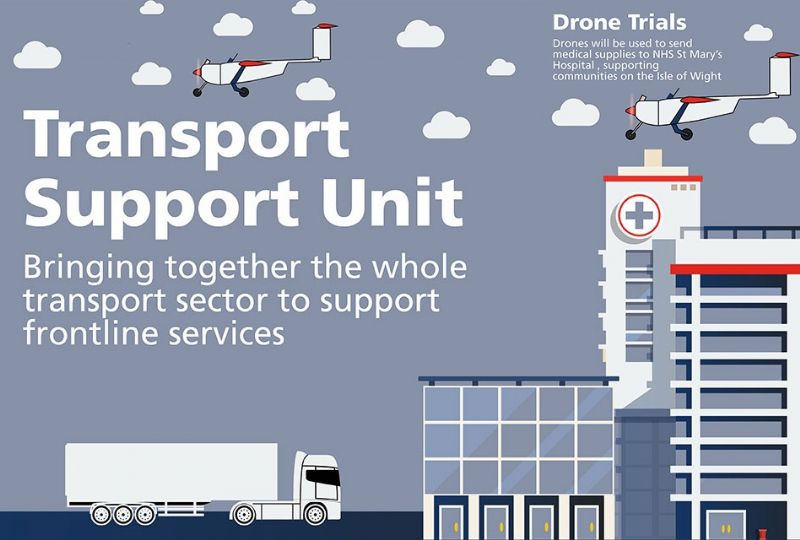
UK – Whilst we have been amongst the first to criticise the over hyping of drones, particularly the airborne variety, as a key to the future of logistics, we have never doubted the advantages they offer in certain niche sectors. Now it seems the problems faced by isolated communities during the pandemic has inspired government to take advantage of a high profile PR opportunity at relatively little expense and encourage their development.
We say little cost but actually, earlier this year, the government awarded Southampton and Portsmouth councils a total of £28 million to carry out drone trials, and now the crisis has caused the authorities to fast track the technology to launch a new trial using drones between the mainland and St Mary’s Hospital on the Isle of Wight, helping ensure it is equipped to tackle the virus.
It is only a few short months since the devices were the bête noir of society after criminals, hitherto uncaught, flew them into the zones around Britain’s busiest commercial airports. Now however they are to be used in work to which they are ideally suited. The announcement however is only a small part of what Transport Secretary Grant Shapps is proposing.
The Department for Transport announced on Friday that thousands of volunteers, vehicles, aircraft and ships from the transport sector have been placed on standby in a new ‘Transport Support Unit’ (TSU) to assist frontline responders during the crisis across the whole of the UK. Assets made available in the TSU include 4 fixed-wing aircraft owned by the Maritime and Coastguard Agency, one of them a Boeing 737. They can be made available for tasks including moving emergency patients and medical supplies.
The DfT, its agencies or the wider transport sector have made more than 8,500 staff available to volunteer to help in the crisis and Highways England is tasked with releasing control vehicles for potential use as mobile Covid-19 testing centres. Network Rail, with the 8th largest commercial vehicle fleet in the country, has 8,500 vans and lorries which can be used to transport essential items during the crisis. It is making available its seven regional distribution centres which can be used for Covid-19 related supplies.
This last is likely to bring objections from the RMT union which last week said it saw no possibility of an agreement to increase rail services after the carriers advised that ministers wanted them to be ready to upscale services on either the 11 or 18 May. RMT General Secretary Mick Cash said that ‘a range of rail companies’ told the union that Ministers definitely want to be ready to increase rail services at some point in May.
Mr Cash continued on to say that his union’s recent survey of 10,000 transport workers has shown ‘there are widespread failures to provide even the most basic protections [from the virus] for our members. If these are not addressed then a ramping up of transport services will also ramp up the risk to workers and passengers’, something which presumably also applies to the Network Rail fleet of trucks and personnel.
Source: handyshippingguide
Quality Companies